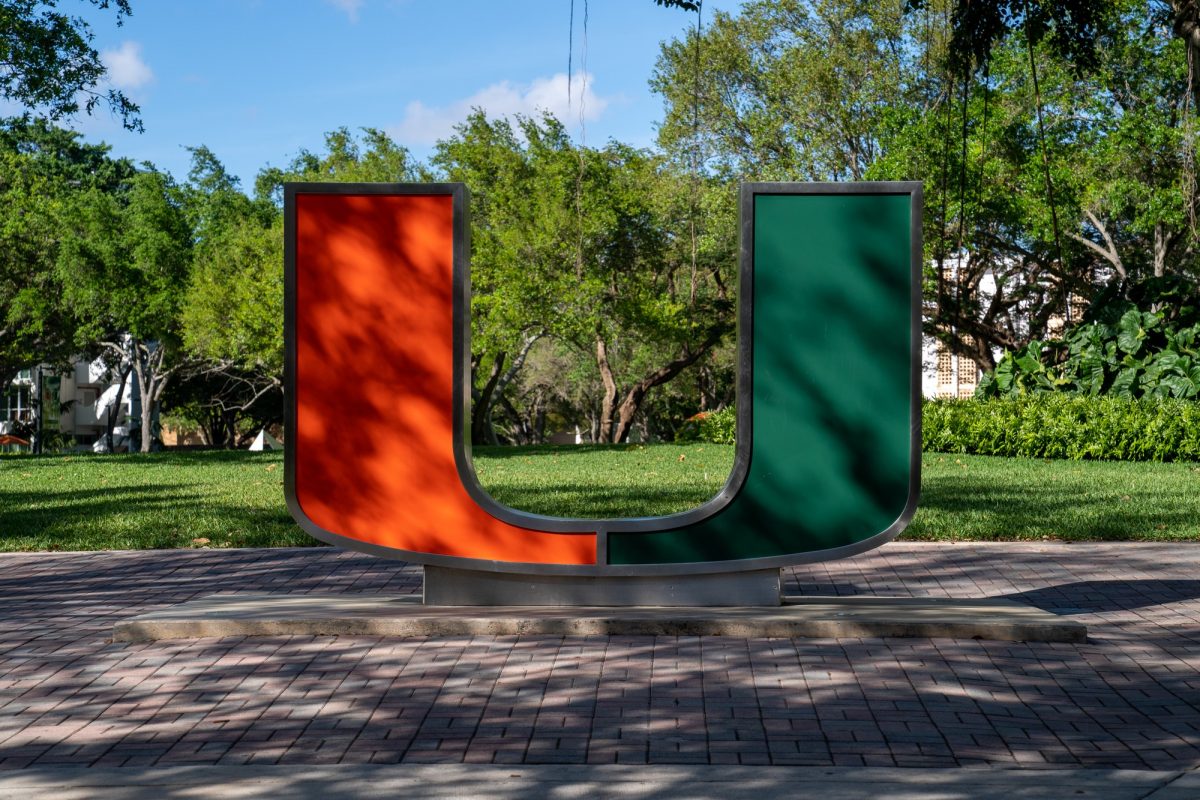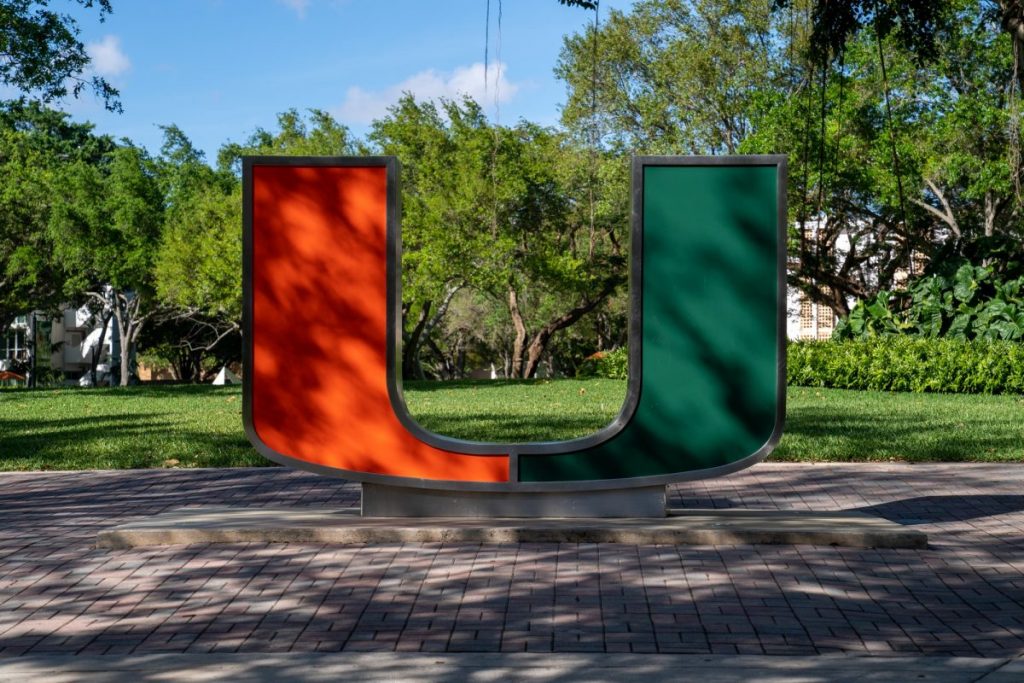

After the University of Miami suspended classes on campus in March due to the on-going Covid-19 pandemic, students were forced to finish the rest of the spring semester at home via online instruction without a refund on tuition.
As a result, two undergraduate students and two UM parents, including junior marketing major Adelaide Dixon, recent architecture graduate Valeria Dimitryuk, Julie Gold and Michael Weiss on behalf of their sons are suing the University of Miami as part of a class-action lawsuit, alleging students deserve a portion of their tuition back because they did not receive the in-person, on-campus instruction they paid for.
This lawsuit against the University of Miami is one of 30 class-action lawsuits filed against universities around the country, which include Drexel University, University of California-Berkeley and Boston University. The total cost of attendance at UM is roughly $70,000 a year. Since this is a class-action lawsuit, all students who were enrolled at UM during the spring of 2020 would benefit.
“We acknowledge that the university had to make very tough decisions in order to protect the university and safety of the students,” said Roy Wiley who is representing Dixon. “We don’t take the position that they should not have done anything necessarily differently just that they should refund the students for the product the students bought and what they delivered.”
Wiley’s firm created collegerefund2020.com for students who have yet to receive relief from their respective universities over spring tuition to seek a lawyer and inquire about a possible lawsuit.
Although the university offered online instruction, according to Dixon’s suit, UM students lost the benefits of on-campus instruction, including extra-curricular activities, access to facilities and face-to-face interaction with professors. Therefore, Wiley said the students are entitled to a partial refund over students’ inability to access any of the on-campus services.
“The case is not asking for all the tuition for the spring semester but a percentage of the portion representing the difference for what the students paid for and what the university actually delivered,” Wiley said. “It is about basic fairness.”
The complaint asserts the university “has failed and continues to fail to adequately and fully refund plaintiff and class members’ fees for on-campus services which Defendant is no longer providing.” It is unclear what percentage of reimbursement is being sought.
The university declined to comment on the pending litigation but issued this statement:
“The University of Miami continues to be committed to the health and safety of our community, providing a robust online learning environment, and proactively working with all of our students and their families to make it through this difficult time and for all of us to emerge stronger in the future.”
All of the lawsuits reiterate the students deserve refunds because online instruction, they argue, is less costly for the university and less effective for the students. Additionally, Wiley asserts the university received millions of dollars in COVID-19 related relief from the federal government’s CARES Act so the students should be entitled to a refund.
“The university has substantial financial resources and the students don’t have the same level of resources,” he said. “If they are permitted to keep all the money the students paid, all the CARES Act money and save money on the cost side, then essentially they will be profiting from the pandemic. That’s just not right.”
According to ‘Canes Central, the University of Miami received around $4 million in CARES Act funding. As of July 30, the university distributed 1335 Emergency Financial Aid Grants for a total of $1.8 million. 64 percent of Undergraduate students were eligible for relief due to the sudden disruption of campus operations resulting from COVID-19.
With the same allegations of breach of contract and unjust enrichment, the four plaintiffs consolidated their suits to expedite the process. The case has yet to be dismissed and unlike other universities, Wiley said, UM has yet to issue any solution to the students’ grievances. While many schools, including UM issued refunds for room and board, none have budged on the rest of tuition as a result of the change in learning.
Despite the recent surge in coronavirus cases in July, UM decided to resume classes this fall on Aug. 17 with in-person instruction and students returning to campus. However, UM President Julio Frenk, the former secretary of Health of Mexico, said the number of COVID-19 cases and deaths would decline in mid-August and the statistics support that. On Aug. 24, Miami-Dade County reported its lowest number of cases since June at around 2,300 cases.
Student Government President senior Abigail Adeleke, who declined to comment on the on-going lawsuit, said she is grateful the university has taken the necessary precautions to guarantee a safe return to campus.
“In order for us to continue to be on our beautiful campus it’s going to take all of us doing the right thing, said Adeleke. “Wearing a mask, social distancing, and limiting unnecessary travel is how all of us are going to remain safe and healthy. Incredibly grateful for the University of Miami’s dedication to our return and that they didn’t take the easy route and go fully online.”
Additionally, there is not a reduction in tuition for students this school year. Students are allowed to opt into fully online instruction, but they will still have to pay the bulk of the semester’s tuition even if they are not on campus. Frenk announced that around 25 percent of undergraduate students are online this semester.
Yet, others do not see the value in exclusively learning online, instead opting to take the semester off.
“The experience of completely online learning is very different from what a traditional semester would look like and for the same price, I felt like there was less value in exclusive online learning,” sophomore said Zach Ng, a finance major who elected to take a semester off over the unpredictability of the COVID-19 pandemic
Ng acknowledges the university is taking a financial hit as a result of the COVID-19 pandemic; thus, he did not expect tuition to be lowered.
“Although education is very messy right now, most prestigious universities despite volatility in enrollment don’t feel the pressure to lower costs because they’re still at a position to do so,” Ng said. “Students don’t really have much bargaining power if any, so I’m not surprised that the price is the same (or increasing at that same rate) but I do understand that we are all taking a hit in some way.”
While some students wanted to return to campus for in-person classes, others, including many professors, worry about the risk of a COVID outbreak. Since Aug.16, there have been a total of 156 positive COVID-19 cases.
Thus, some students do not have high hopes in-person instruction will make it through the full fall semester, leaving them wondering if they would be awarded a refund if school were to shut down once again.
News Editor Jesse Lieberman contributed to the reporting of this story.






